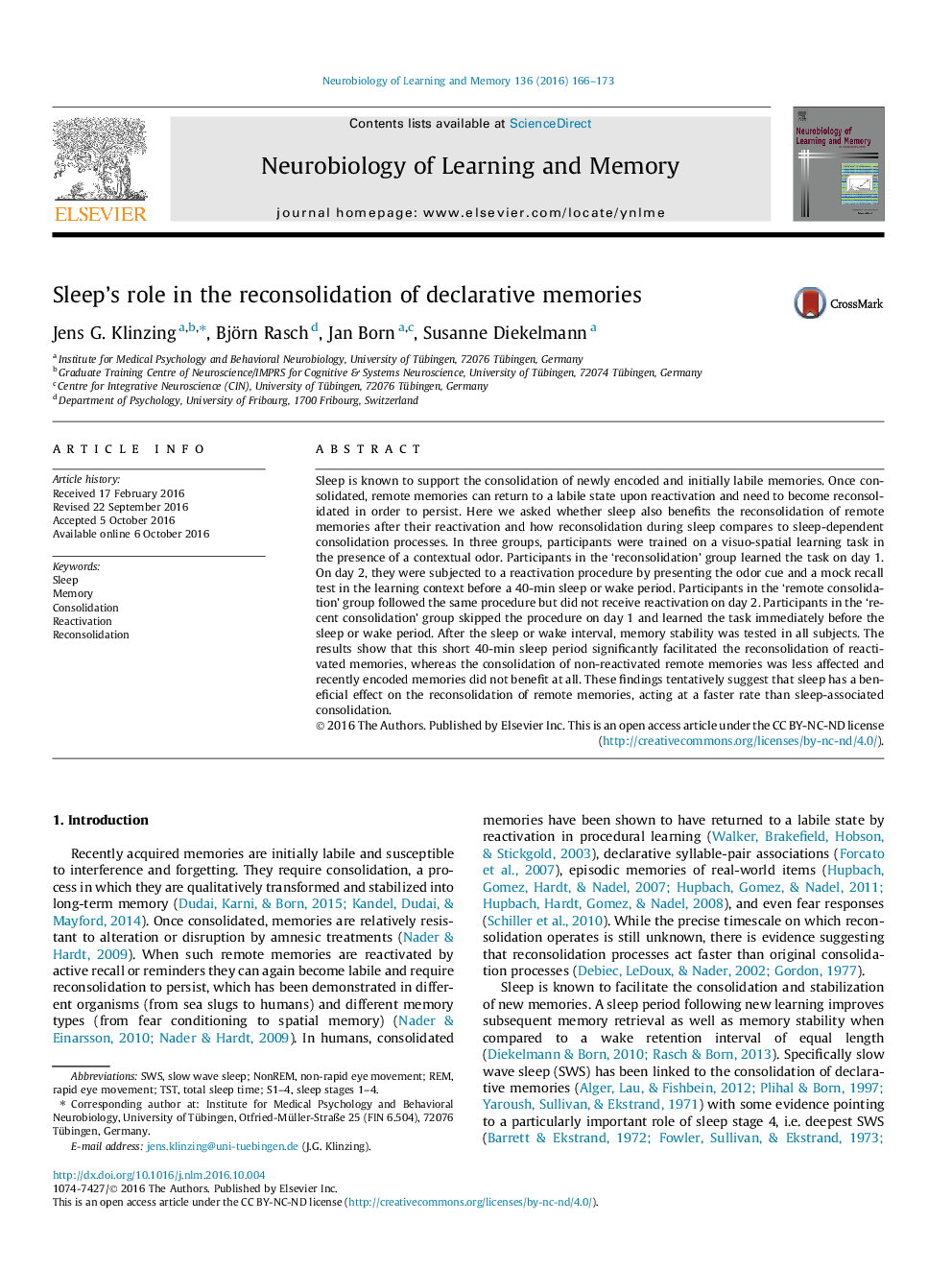| کد مقاله | کد نشریه | سال انتشار | مقاله انگلیسی | نسخه تمام متن |
|---|---|---|---|---|
| 5043252 | 1475138 | 2016 | 8 صفحه PDF | دانلود رایگان |
- In a reconsolidation paradigm, memories were reactivated 24Â h after learning.
- A 40-min sleep period following reactivation rapidly re-stabilized the memories.
- Without prior reactivation this sleep effect was considerably weaker.
- The 40-min sleep period was also not sufficient to improve initial consolidation.
- This may indicate a rapidly acting beneficial effect of sleep on reconsolidation.
Sleep is known to support the consolidation of newly encoded and initially labile memories. Once consolidated, remote memories can return to a labile state upon reactivation and need to become reconsolidated in order to persist. Here we asked whether sleep also benefits the reconsolidation of remote memories after their reactivation and how reconsolidation during sleep compares to sleep-dependent consolidation processes. In three groups, participants were trained on a visuo-spatial learning task in the presence of a contextual odor. Participants in the 'reconsolidation' group learned the task on day 1. On day 2, they were subjected to a reactivation procedure by presenting the odor cue and a mock recall test in the learning context before a 40-min sleep or wake period. Participants in the 'remote consolidation' group followed the same procedure but did not receive reactivation on day 2. Participants in the 'recent consolidation' group skipped the procedure on day 1 and learned the task immediately before the sleep or wake period. After the sleep or wake interval, memory stability was tested in all subjects. The results show that this short 40-min sleep period significantly facilitated the reconsolidation of reactivated memories, whereas the consolidation of non-reactivated remote memories was less affected and recently encoded memories did not benefit at all. These findings tentatively suggest that sleep has a beneficial effect on the reconsolidation of remote memories, acting at a faster rate than sleep-associated consolidation.
Journal: Neurobiology of Learning and Memory - Volume 136, December 2016, Pages 166-173
